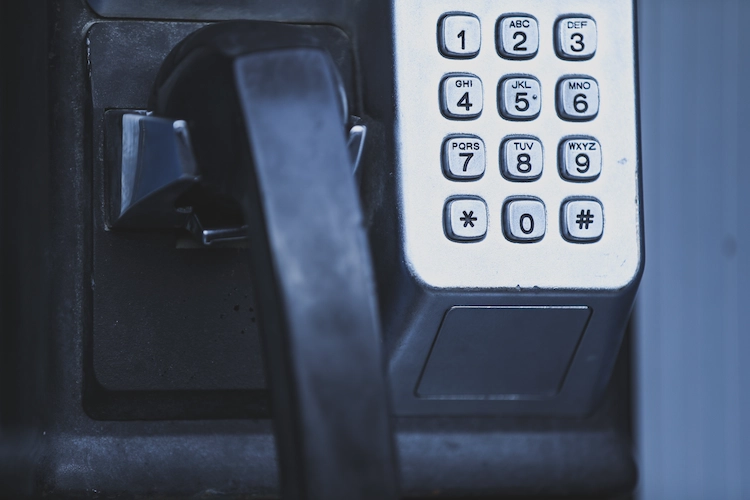SCOTUS Holds Wire Fraud Statute Doesn’t Require Proof Victim Suffered Economic Loss

In Kousisis v. United States, 605 U.S. ____ (2025), the U.S. Supreme Court held that a defendant who induces a victim to enter into a transaction under materially false pretenses may be convicted of federal fraud even if the defendant did not seek to cause the victim economic loss. The Court’s decision resolves a circuit split among the lower courts.
Facts of the Case
The Pennsylvania Department of Transportation (PennDOT) awarded petitioners Stamatios Kousisis and Alpha Painting and Construction Co. two contracts for painting projects in Philadelphia. Federal regulations required contract awardees to subcontract a portion of every contract to a disadvantaged business enterprise. As part of the bidding process, Kousisis falsely represented that Alpha would obtain its paint supplies from Markias, Inc., a prequalified disadvantaged business. However, unbeknownst to PennDOT, Kousisis arranged for Markias to function as a mere “pass-through” entity. As a pass-through, Markias did not provide any paint supplies, but funneled checks and invoices to and from Alpha’s actual suppliers. Alpha performed the painting projects to PennDOT’s satisfaction and obtained more than $20 million in gross profit.
The Government charged Alpha and Kousisis with wire fraud and conspiracy to commit the same pursuant to 18 U.S.C. §§1343, 1349. The charges were premised on the fraudulent-inducement theory, essentially that the Petitioners had induced PennDOT to award them the painting contracts under materially false pretenses. After a jury convicted Alpha and Kousisis of wire fraud, they moved for acquittal. They argued that despite the lack of disadvantaged-business participation, PennDOT had received the full economic benefit of its bargain. Thus, the Government could not prove that they had schemed to defraud PennDOT of “money or property” as §1343 requires.
The Third Circuit affirmed. Its decision deepened a circuit split over the validity of a federal fraud conviction when the defendant did not seek to cause the victim net pecuniary loss. The Supreme Court granted certiorari to address the division.
Supreme Court’s Decision
The Supreme Court affirmed by a vote of 9-0. Justice Barrett wrote the opinion, in which Chief Justice Roberts, Justices Thomas, Alito, Kagan, Kavanaugh, and Jackson joined. Justice Gorsuch filed an opinion concurring in part and concurring in the judgment, and Justice Sotomayor filed an opinion concurring in the judgment.
In reaching its decision, the Court noted that in order to convict Alpha and Kousisis, prosecutors needed to prove that they used the wires to execute a “scheme or artifice to defraud, or for obtaining money or property by means of false or fraudulent pretenses, representations, or promises.” Under existing Court precedent, the statute has been interpreted to require that a defendant both engage in deception and have money or property as an object of his fraud.Nonetheless, the Court rejected the Petitioners’ argument that a federal fraud conviction cannot stand unless the defendant sought to cause the victim net pecuniary loss.
In support of its holding, the Court cited both the text of §1343 and Supreme Court precedent interpreting it. To start, Justice Barrett noted that the text of §1343 does not mention economic loss, let alone require it. The Court further found that Alpha and Kousisis’s conduct satisfied each element of § 1343. As Justice Barrett explained:
By using Markias as a pass-through entity, petitioners “devised” a “scheme” to obtain contracts through feigned compliance with PennDOT’s disadvantaged-business requirement. Their goal? To “obtai[n] money” (tens of millions of dollars) from Penn-DOT. And how? By making a number of “false or fraudulent . . . representations”—first about their plans to obtain paint supplies from Markias and later about having done exactly that. Section 1343 requires nothing more.
The Court next turned to Supreme Court cases interpreting the wire fraud statute. Citing Carpenter v. United States and Shaw v. United States, Justice Barrett emphasized that the Supreme Court has also “twice rejected the argument that a fraud conviction depends on economic loss.”
Previous Articles
SCOTUS Decision in Bowe v. United States Is First of the 2026 Term
by DONALD SCARINCI on February 5, 2026
In Bowe v. United States, 607 U.S. ___ (2026), the U.S. Supreme Court held that Title 28 U.S.C. § ...
SCOTUS Rules State Can’t Immunize Parties from Federal Civil Liability
by DONALD SCARINCI on January 29, 2026
In John Doe v. Dynamic Physical Therapy, LLC, 607 U.S. ____ (2025) the U.S. Supreme Court held that...
Supreme Court to Address Racial Discrimination in Jury Selection
by DONALD SCARINCI onWhile the U.S. Supreme Court has concluded oral arguments for the year, it continues to add cases t...
The Amendments
-
Amendment1
- Establishment ClauseFree Exercise Clause
- Freedom of Speech
- Freedoms of Press
- Freedom of Assembly, and Petitition
-
Amendment2
- The Right to Bear Arms
-
Amendment4
- Unreasonable Searches and Seizures
-
Amendment5
- Due Process
- Eminent Domain
- Rights of Criminal Defendants
Preamble to the Bill of Rights
Congress of the United States begun and held at the City of New-York, on Wednesday the fourth of March, one thousand seven hundred and eighty nine.
THE Conventions of a number of the States, having at the time of their adopting the Constitution, expressed a desire, in order to prevent misconstruction or abuse of its powers, that further declaratory and restrictive clauses should be added: And as extending the ground of public confidence in the Government, will best ensure the beneficent ends of its institution.





